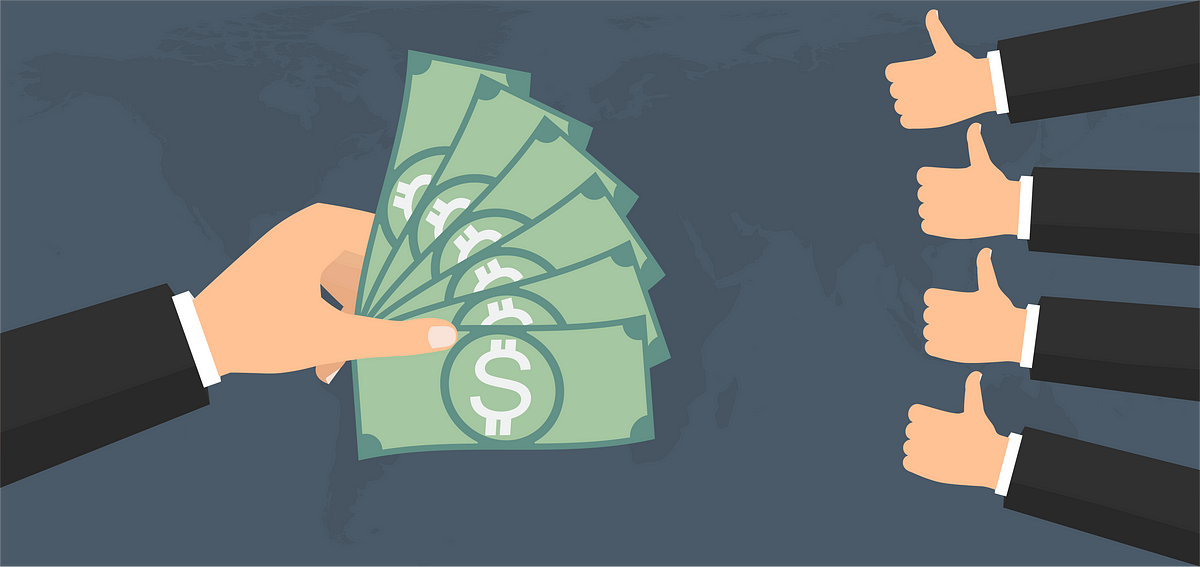Politicians Who Pass on PACs Get More From CEOs
Business PACs have gotten a bad name, but banning their campaign contributions could have worse side effects. Candidates who refused corporate PAC money got it in a less traceable way: from CEOs.
Based on the research of Brian Richter and Timothy Werner

Last year, in announcing a run for the U.S. Senate, Beto O’Rourke promised he would not take any money from political action committees. The Democratic Congressman from El Paso, Texas, backed up his oath by co-sponsoring a NO PAC Act, which would ban all congressional campaigns from accepting PAC donations.He’s not alone, says Timothy Werner, associate professor of Business, Government, and Society at Texas McCombs. Werner has identified 51 congressional candidates who declined contributions from corporate PACs during at least one campaign.
Such pledges, he says, can score political points about incorruptibility or independence from special interests. But they don’t necessarily stop the flow of corporate cash. In new research, Werner and McCombs Assistant Professor Brian Richter show that corporate dollars still find their way to candidates, through a less visible channel: CEOs.
When candidates turned away business PACs, their study found, the firms’ CEOs upped their giving to those same candidates, in amounts that could rival PAC donations.
“Wealthy individuals can substitute for an organization’s prior giving,” Werner says. “It washes away the goal the candidate was setting out to achieve.”
Like Water, Money Finds a Way
In fact, the researchers were seeking evidence for the hydraulic theory of campaign finance, which compares political cash to water. Explains Werner: “Water is running downhill. You can dam it up in one spot, but it’s going to find a way.”
When businesses are prevented from donating directly through PACs, the theory posits, they will donate indirectly though executives. They can do so by taking advantage of a gray area in the law: It may be illegal to reimburse an employee for making a campaign contribution, Richter says, but a well-heeled executive is free to donate on their own.
“We wanted to examine whether actions taken ostensibly for personal purposes maybe isn’t strictly personal,” says Richter. “This is largely a forensic investigation into behaviors that no one will admit to doing.”
To support their assumption that CEOs are acting as proxies for PACs, the researchers looked at Federal Election Commission records for 7,421 candidates and 950 S&P 500 companies from 1991 to 2008. They found plenty to support the theory:
Nearly three times as many CEOs gave to no-PAC candidates as gave to those accepting PAC cash.
Candidates who took PAC money got an average of $1,110 from all CEOs. But those who snubbed it got an average of $3,376 from CEOs.
The substitution was most dramatic for politicians who flipped from taking a corporate PAC’s donations to refusing them. In those cases, the average CEO’s contribution went up about $65.
That $65 may not sound like much, but it is more than 30 times what the average CEO donates to a candidate. It’s almost as much as the average PAC contribution. Says Werner. “If the firm had a prior contributing relationship with a candidate, the dollar amounts coming from its CEO start to look more like PAC contributions.”
Myth-Busting Business PACs
The study also upends conventional wisdom about no-PAC candidates. You might expect them to be largely Democrats and anti-establishment challengers. Not so, the researchers found. Sixty-seven percent were Republicans and 82 percent were incumbents.
Werner offers a couple of explanations. Incumbents can more easily afford to forego PAC cash, he says. And through most of the period he examined, majorities of congressional incumbents were Republicans.
Another myth is that anti-PAC’ers are also anti-business. Werner points to those who took corporate cash before they started refusing it. Prior to their changes of heart, they had gotten slightly bigger average donations from business PACs than other candidates.
Their vows, he says, are usually about political tactics rather than ideology. Another clue is that there were fewer such promises after 2002, when the McCain-Feingold Act banned unlimited donations to political parties.
“At the time, that was considered the most egregious form of corporate giving,” Werner says. Once corporate PACs couldn’t give unlimited amounts, there was less political virtue to be signaled by refusing them.
Perhaps the biggest public misconception is about how much influence business PACs actually have on elections, he says. In earlier research, Werner found they account for only 15 percent of a typical candidate’s contributions.
Banning PAC money from politics could have unintended side effects, Richter warns. If U.S. Rep. Beto O’Rourke’s bill banning PAC money from congressional campaigns became law, he says, “I would expect to see a lot of CEOs and other executives start spending more personal money on campaigns.”
Right now, the average CEO gives to 3.9 candidates. But that number could rise, Richter notes, thanks to a recent Supreme Court decision, which effectively removed limits on how many candidates an individual can fund.
It could also mean less transparency, he adds, when watchdogs want to follow the money in elections. It’s easier to track a firm’s PAC donations than the names of all its top executives.
That’s the larger challenge of efforts to reform campaign finance, Richter says. “No matter what we do, we can’t keep corporate money out of politics. We can try to regulate it away, but it’s going to find a way in. It will just be a little more hidden.”
“Campaign Contributions from Corporate Executives in Lieu of Political Action Committees” was published in the Journal of Law, Economics, & Organization.
Story by By Steve Brooks
About this Post
Share:


